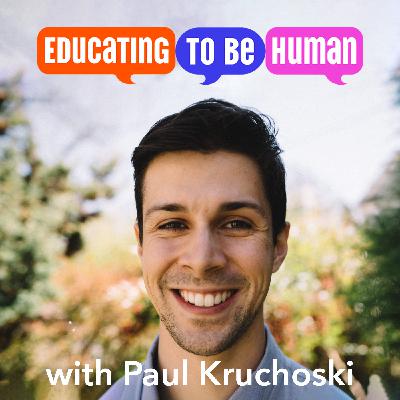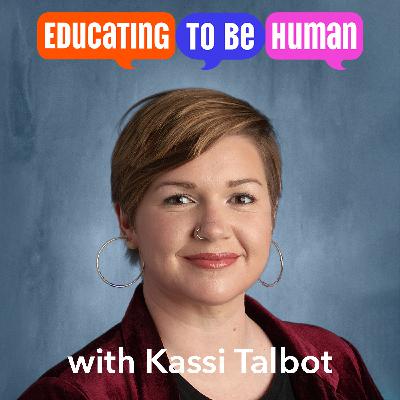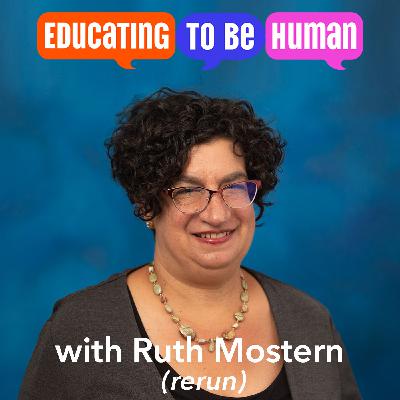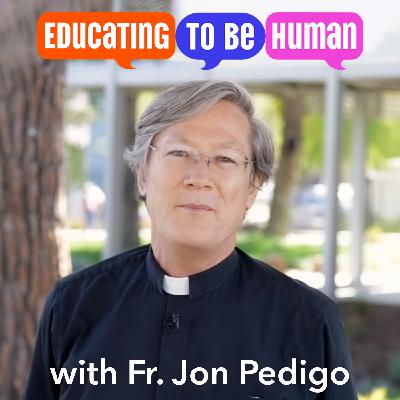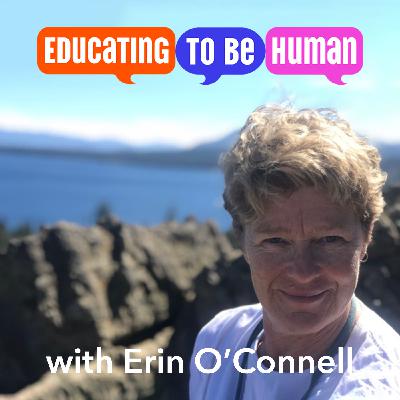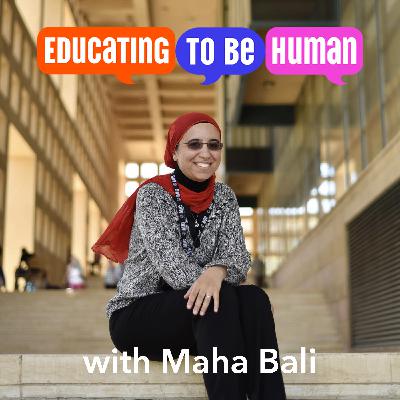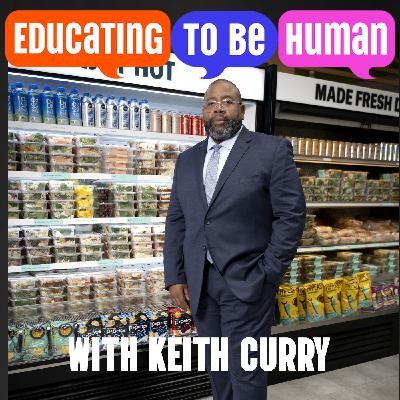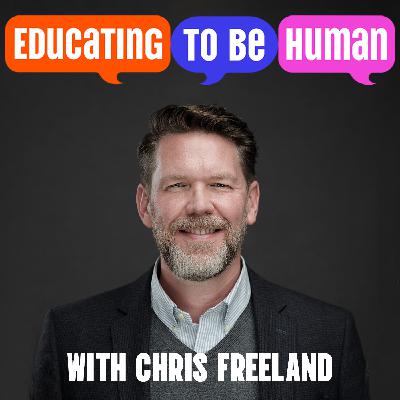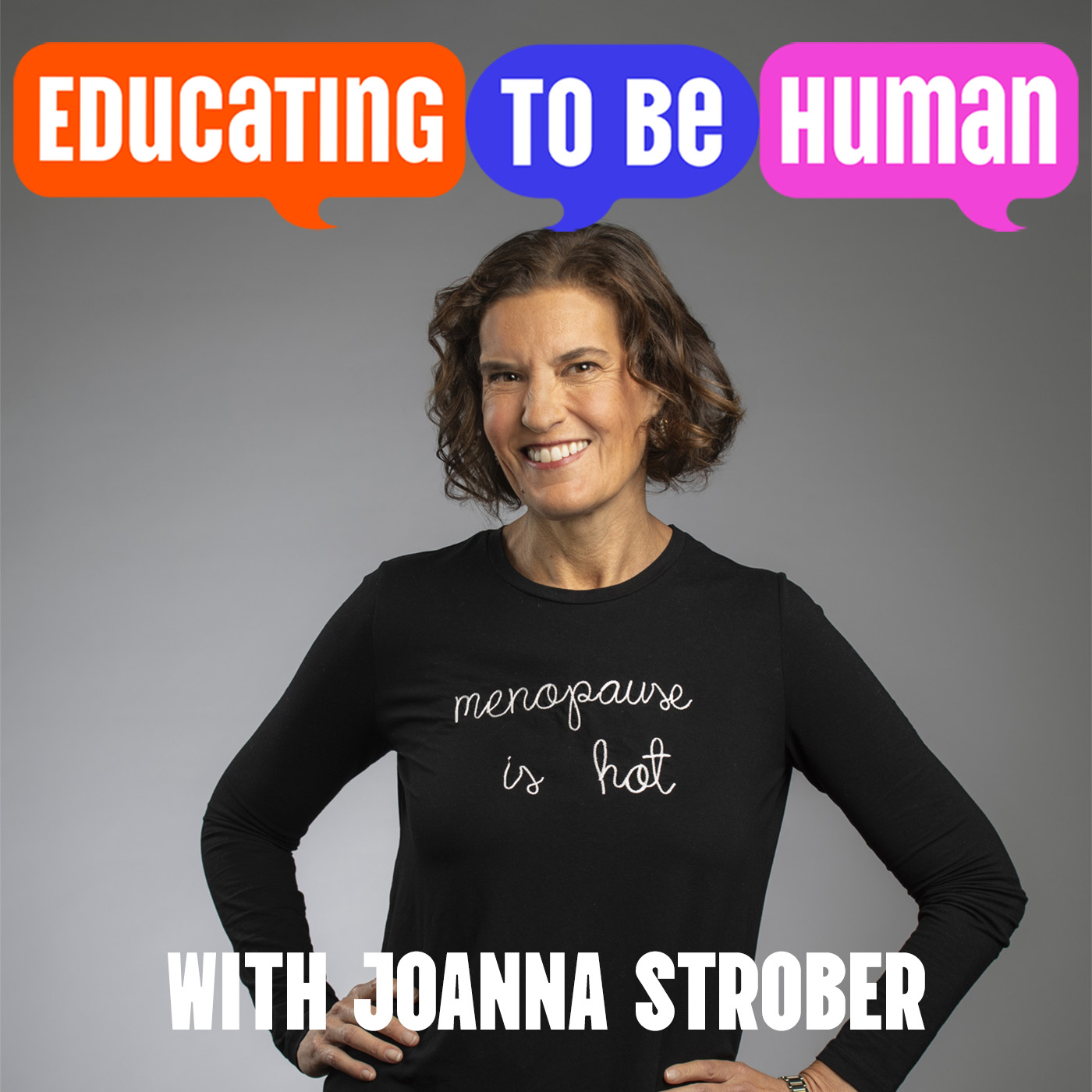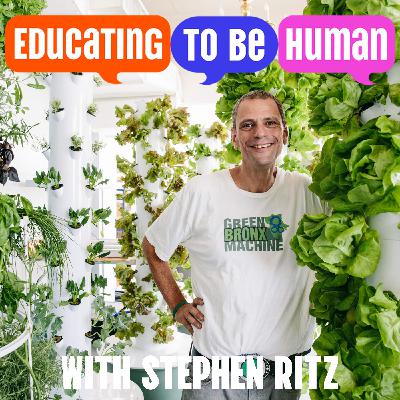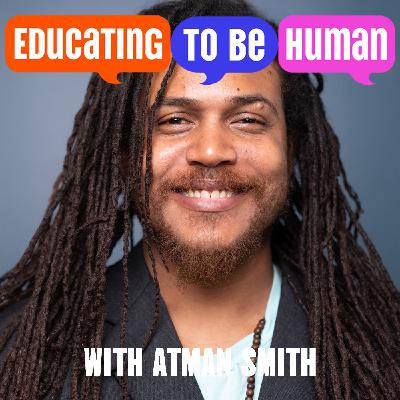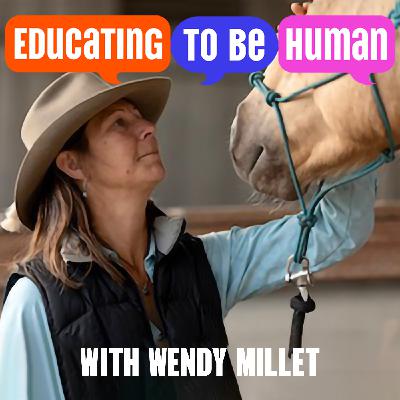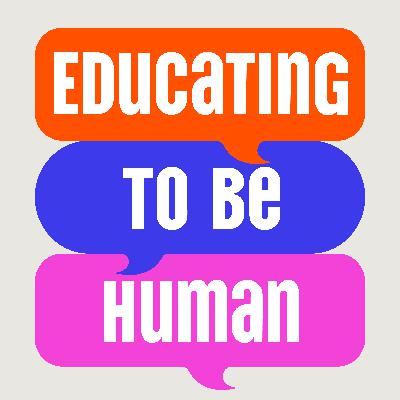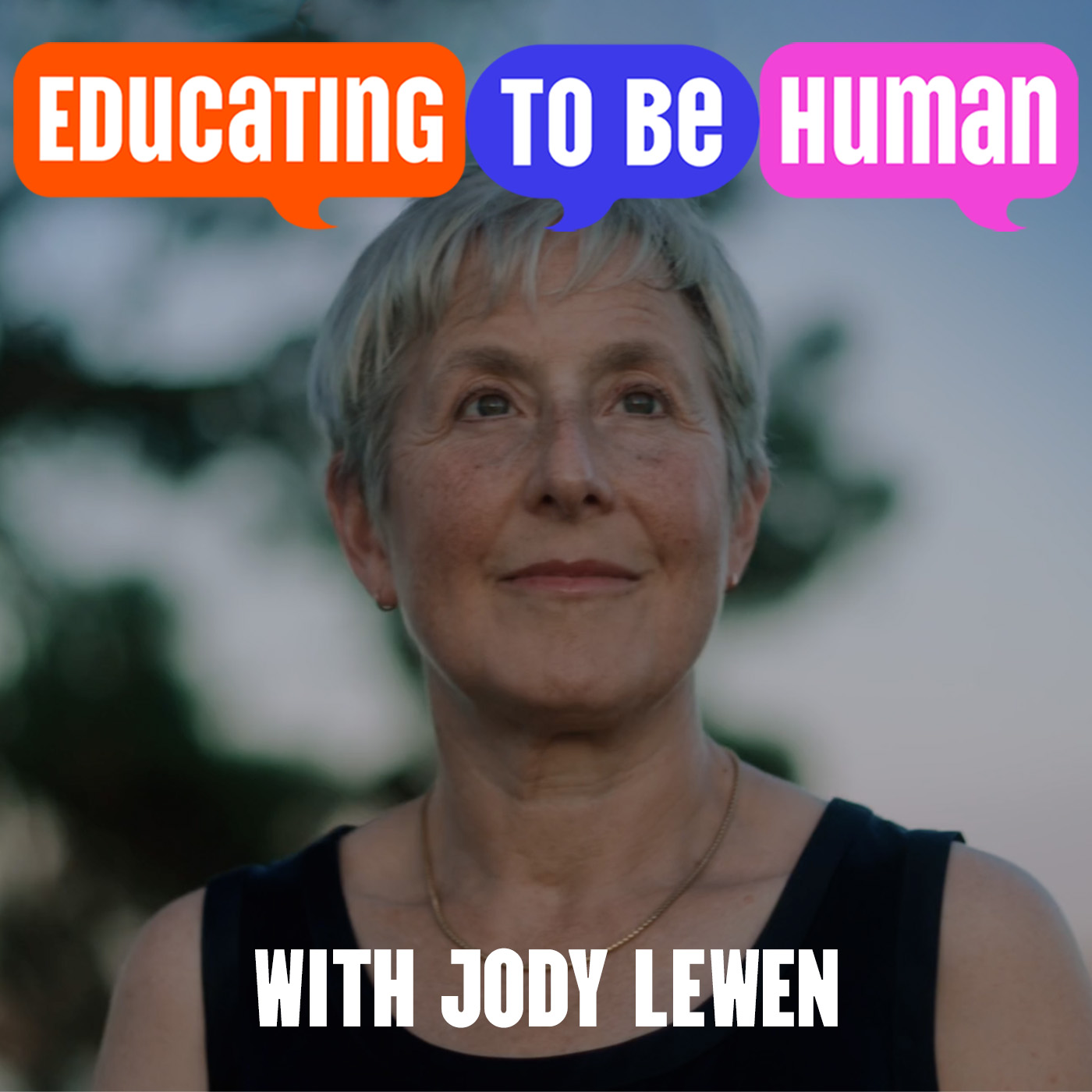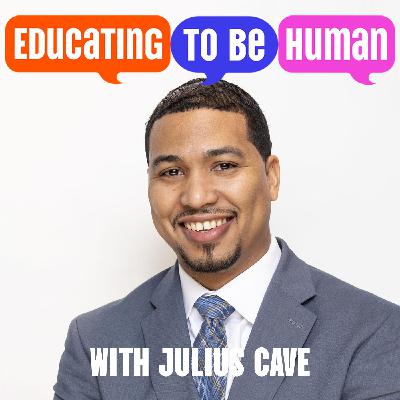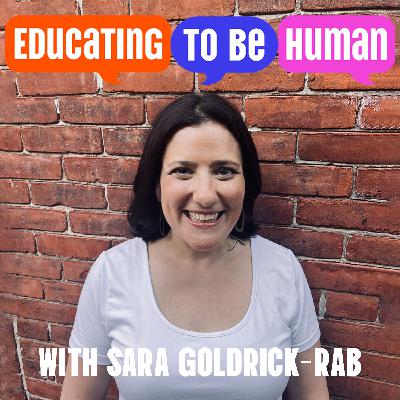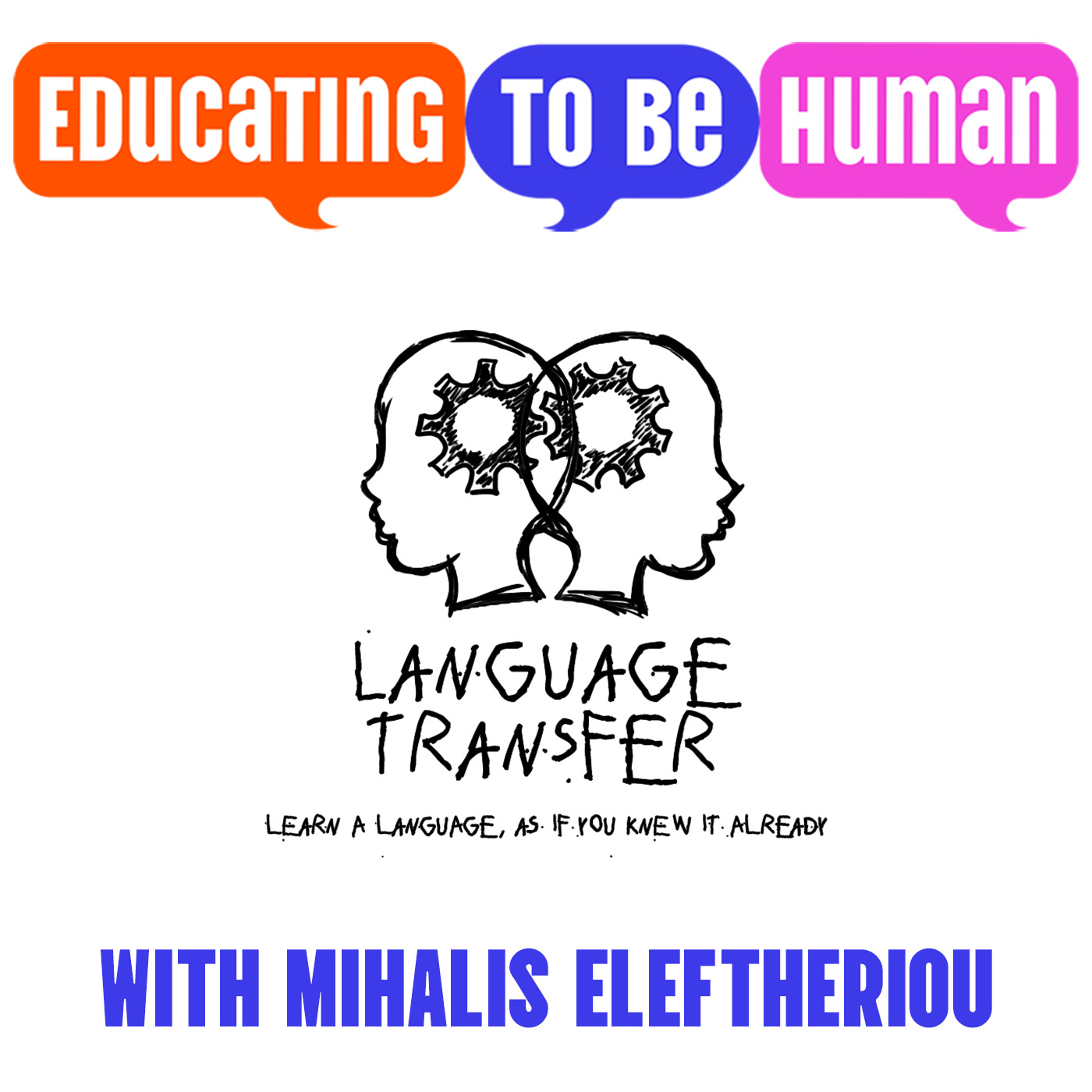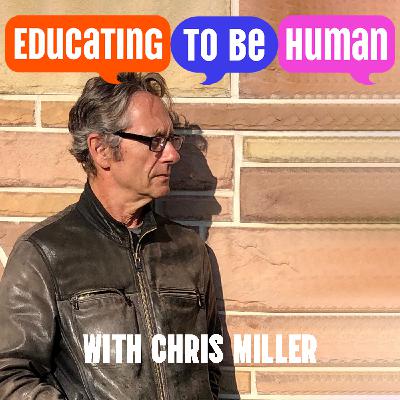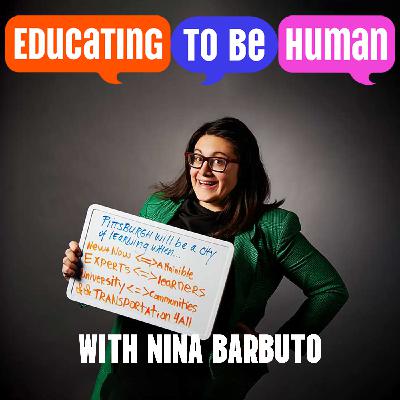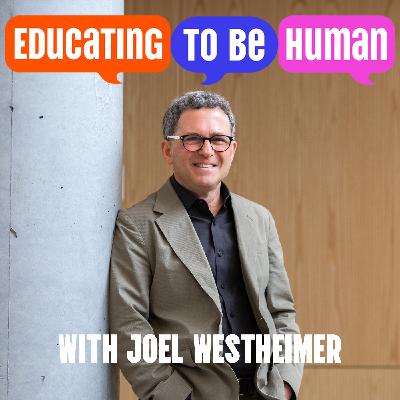The Promise of Public Diplomacy with Paul Kruchoski
Description

In this episode of Educating to Be Human, Lisa Petrides is joined by Paul Kruchoski, a former senior diplomat at the U.S. State Department and often described as a changemaker within the institution, about the human side of public diplomacy and its deep ties to education. Far from being abstract negotiations behind closed doors, public diplomacy is about learning across borders, listening across cultures, and building the kinds of relationships that make peace possible.
Paul shares insights from his work leading initiatives like the Open Book project, which brought openly licensed educational materials to educators across the Middle East and North Africa. He also reflects on how programs like Fulbright create lasting networks of connection, and what it means to push for change inside large bureaucracies.
Together, Lisa and Paul explore the promise and the fragility of diplomacy today.
Paul Kruchoski is a former senior U.S. diplomat and a career member of the Senior Executive Service. In his final role at the State Department, he served as the chief operating office for public diplomacy, managing a $1.5 billion budget and 5000 person global organization. His won the State Department's Sean Smith Award for Innovation in the Use of Technology.
Previously, Paul led the creation and growth of the Research and Evaluation Unit (REU), which helps Public Diplomacy practitioners use evidence and knowledge to make better informed decisions. Previous assignments include Deputy Director of the ECA Collaboratory, Special Assistant in the Bureau of Educational and Cultural Affairs, and several positions in the Bureau of International Organization Affairs.
He is a term member of the Council on Foreign Relations and a graduate of the University of Cincinnati. Outside of his work, Paul is an accomplished cellist.
Full Transcript:
Paul [ 00:00:00 ]When you talk about what it means to educate to be human and why public diplomacy connects into that, there's this great line from the UNESCO constitution: that since wars began in the minds of men, it is in the minds of men that the defenses of peace must be constructed.
Lisa [ 00:00:22 ]This is Educating to be Human, and I'm your host, Lisa Petrides, founder of the Institute for the Study of Knowledge Management in Education. In each episode, I sit down with ordinary people creating extraordinary impact, people who are challenging notions of how we learn, why we learn, and who controls what we. Thank you very much for listening.
Lisa [ 00:00:53 ]Today on Educating to be Human I'm delighted to be speaking with Paul Kruchowski. Paul, a former senior diplomat at the US State Department who was often described as a change maker within that institution, is here with me today to explore the idea of public diplomacy. We often think of public diplomacy as simply the government's way of representing nations abroad, but at its core it is, or will be again, really about education in the broadest sense: helping people learn about one another, exchanging ideas, and humanizing differences that might otherwise feel abstract. That resonates deeply with what we have been asking here on Educating to be Human. Why is it important to cultivate the skills, values, and curiosity that allow us to connect across boundaries? Many ways, public diplomacy is about listening, engaging, and influencing all at once. And most importantly, it's about recognizing our shared humanity. So welcome, Paul. I am truly glad to have you here today. Thank you for joining me
Paul [ 00:02:08 ]; it's a delight to be here. I'm really happy to get to have this conversation with you and to share it with other people too.
Lisa [ 00:02:17 ] Great! So I think, as we get going, you know, we talk about these words, public diplomacy. And how would you explain that public diplomacy to someone, say, at a dinner table who's not heard the term before?
Paul [ 00:02:31 ] Yeah, so public diplomacy is two things: It's the way that a government engages with the public in another country and also the way that we connect people in one country with another country, right? So, government to people and people to people. And that's really different than government to government diplomacy, where you generally have people in institutional power talking, trying to work things out. And because of the different way that public diplomacy works, it has some kind of different goals to it too. And we really talk about public diplomacy being aimed at four things: Understanding informing, influencing, and building relationships between people in the United States and people in countries around the We do that through a bunch of different ways, but that's really what it is at its core. And it really comes back historically to this really interesting moment in time at the end of World War Two that also created a lot of the other institutions that we have come to know and love today. So, I think when you talk about what it means to educate, to be human, and why public diplomacy connects into that, there's this great line from the UNESCO Constitution that "since wars began in the minds of men, it is in the minds of men that the defenses of peace must be constructed." The guy who wrote that is a poet and former State Department official as well, named Archibald MacLeish. He was really influential and helped write and stand up UNESCO. But he was also one of the senior-most public diplomats at that kind of early moment in the Cold War period. And I think this ethos that he embedded in the UNESCO Constitution is what animated a lot of what public diplomacy is today, right? And why we do it.
Paul [ 00:04:32 ] It's this idea that we can have a freer, more peaceful world if people understand each other, and you build those connections beyond just the government to government work
Lisa [ 00:04:44 ]Yeah, and that we thank you. I think that really helps us understand how this is important not only for governments and government to government, but people and people to people, and people to governments. And that reminds me of a project that you and I worked on, or that I was grateful and lucky enough to be part of some years ago, that was really about education diplomacy, which is something also that I think people don't think of when they think of diplomacy. And it was called the Open Book. And maybe you could tell a little bit about that project? It was it was a collaboration between the Department of Education and the U S. State Department.
Paul [ 00:05:25 ]Yeah, so the thrust of Open Book and then why we started doing it. So the idea was that we wanted to figure out ways that we could create some openly licensed educational materials in Arabic. And I think a lot of us, and particularly some of your listeners, may know about OER, open educational resources, and open education and the movement of the United States, which is really designed in a lot of ways to liberate, to bring out creativity in the educational movement and also reduce costs for a lot of people. But, you know, in a lot of other languages and places around the world, you don't even have choices about textbooks. You may not have textbooks available. You know, college students complain, I think rightfully, that they're now on the 19th edition of some core book that gets updated every other year, and you can't use the old editions. But when I, when I and many of my colleagues were talking to students at universities in the broader Arab world, they're still using textbooks where

